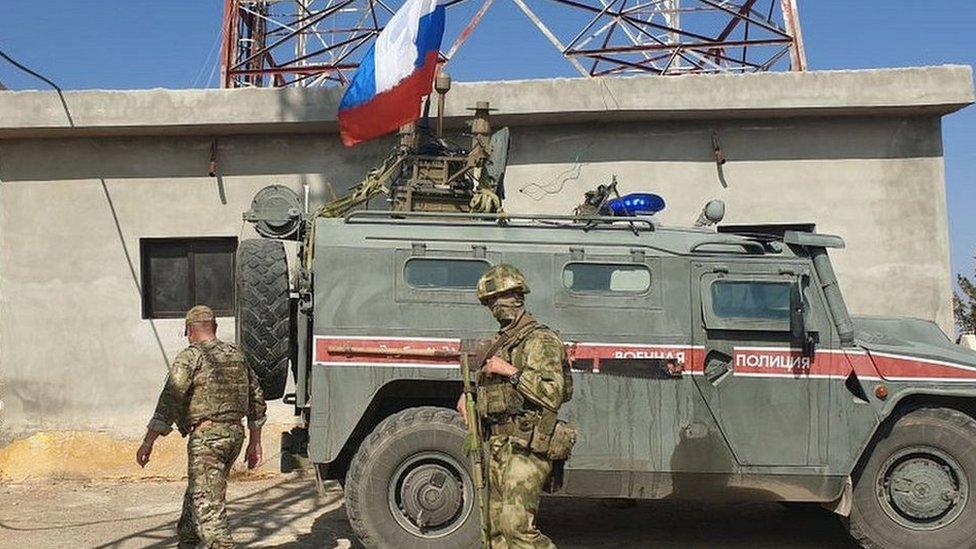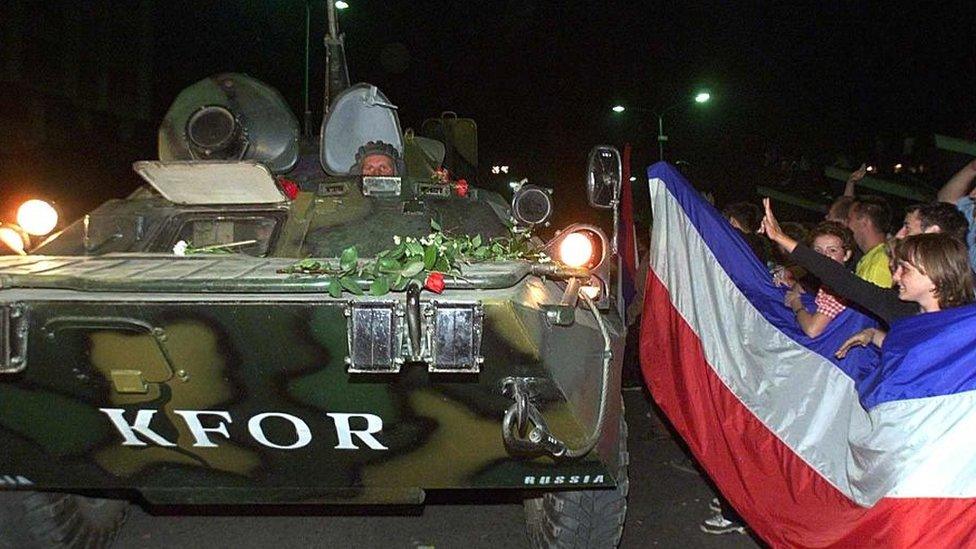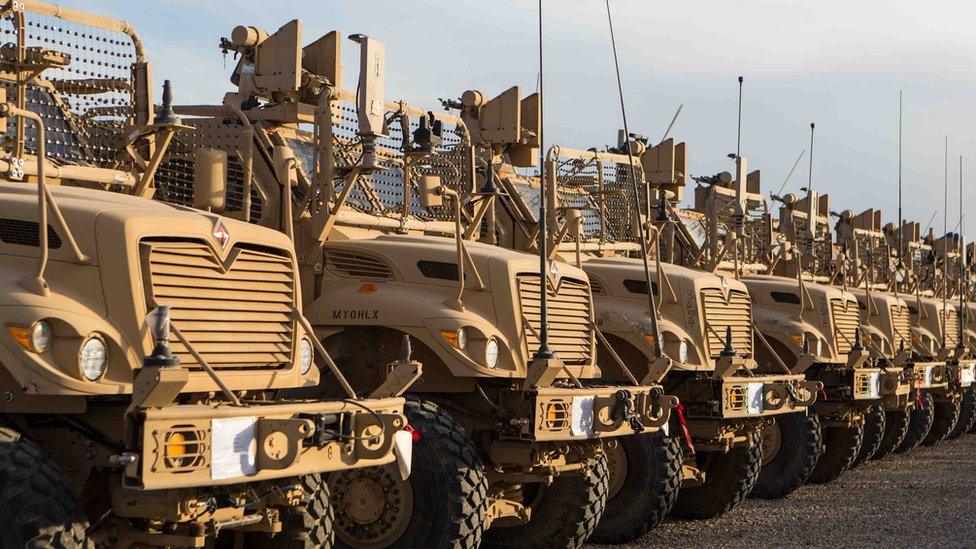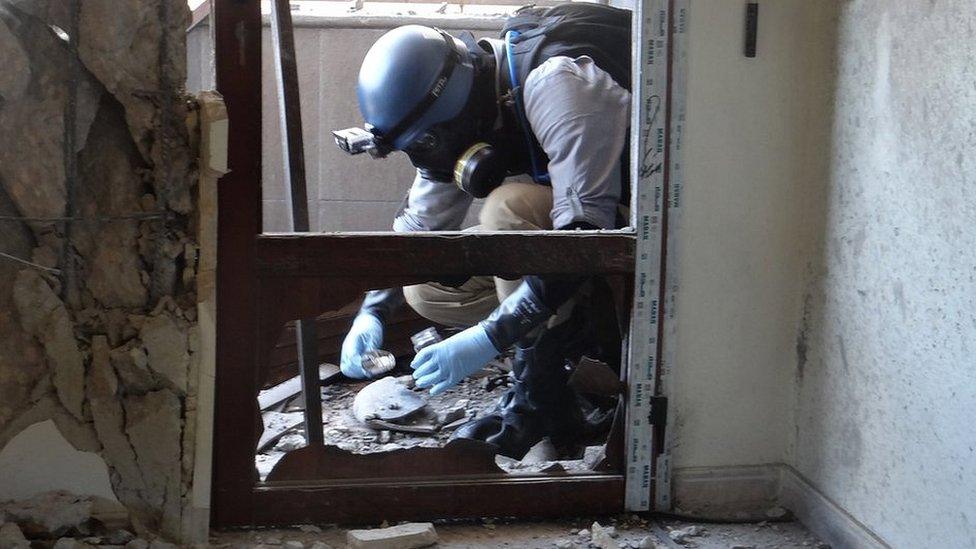Turkey Syria offensive: Is co-operation with Russia unprecedented?
- Published

Russian forces in northern Syria
The Russian and Turkish military are working together under a deal to remove Kurdish troops from the Turkey-Syria border.
Turkey is a member of Nato, so this agreement is highly unusual - even though it's a bilateral one and does not involve Nato itself.
Is such co-operation between Russia and members of the Nato alliance unprecedented?
Turkey and Russia are going to work together for a political solution for Syria
Relations between Nato and Russia have been severely strained following the Russian intervention in Ukraine in 2014.
So co-operation between Moscow and a Nato member inside Syria is highly contentious, as is a German proposal for an internationally controlled security zone in the area.
Co-operation in the Balkans
Nato forces have worked with Russian troops before, though.
The conflict that eventually led to the break-up of the former Yugoslavia in the 1990s saw Russian and Nato forces working alongside each other.
Under what became known as the Partnership for Peace programme, Russia took part in security patrols alongside Nato forces once the war had ended in Bosnia in 1995.

Russian peacekeepers welcomed by Serbs in Kosovo
Russia also had peacekeeping troops working alongside Nato in the Serbian province of Kosovo in the 1990s.
But this relationship became strained when in 1999, Kosovo Albanians broke away from Serbia.
Nato intervened to protect Kosovo Albanian civilians against the actions of the Moscow-backed Serbian government.
Russia froze military co-operation with Nato after the alliance launched large-scale bombing raids on Serbia.
And there was a tense stand-off between Nato and Russian troops in the Kosovan capital, Pristina, which was eventually defused.
Afghanistan war co-operation
During the Afghan conflict, Moscow allowed Nato forces to use Russian-controlled territory for transit routes for non-military supplies.
There's also been some Russian co-operation in anti-drugs operations and in support for the Afghan army's helicopter fleet.

Military vehicles can be sent via Russia if their weaponry is taken off
Relations with Nato soured following Moscow's intervention in Georgia in 2008 but discussions resumed the following year to re-establish both land and air routes via Russia for non-lethal equipment going to Nato forces in Afghanistan.
Destroying chemical weapons in Syria
Russia has also played an important role helping with an international plan involving Nato countries to destroy Syria's chemical weapons.

The UN found evidence of a chemical attack near Damascus in 2013
In 2013, Russia and the US reached a deal to destroy the Syrian government's chemical weapons stockpile - Moscow is Syria's most important ally outside the region.
The operation to remove and then destroy the chemicals was carried out the following year under UN auspices.
The Russians provided security for loading the chemicals on to ships in Syria and took part in naval escorts to accompany the chemicals to countries where they could be safely disposed of.


- Published23 October 2019